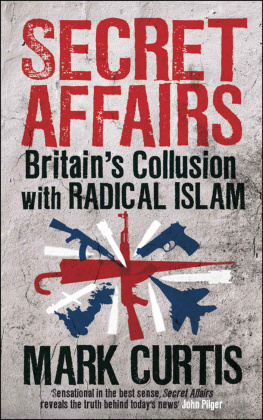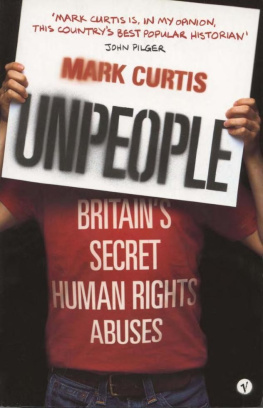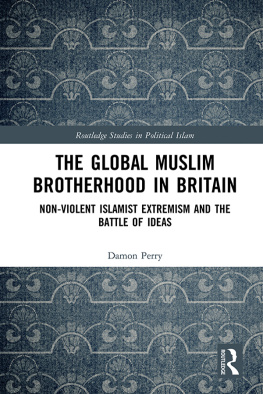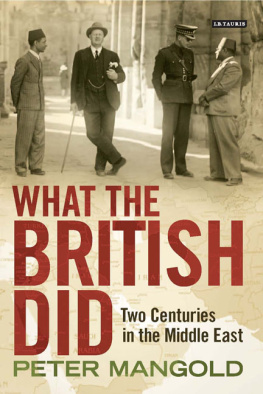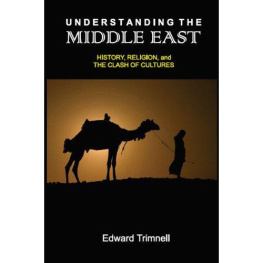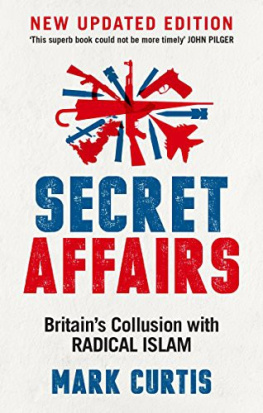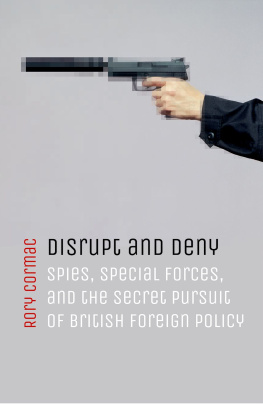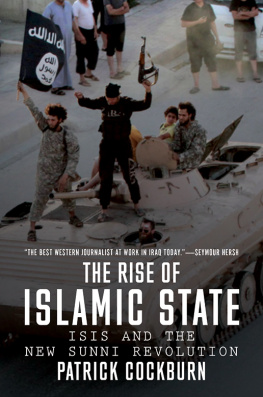Mark Curtis is an author, journalist and consultant. His previous books include the best-selling Web of Deceit: Britains Real Role in the World, and Unpeople: Britains Secret Human Rights Abuses. He was formerly a Research Fellow at the Royal Institute of International Affairs (Chatham House), Director of the World Development Movement and Head of Policy at ActionAid and Christian Aid. Websites: www.markcurtis.info and www.curtisresearch.org
SECRET AFFAIRS
BRITAINS COLLUSION WITH RADICAL ISLAM
MARK CURTIS

A complete catalogue record for this book can be obtained from the British Library on request
The right of Mark Curtis to be identified as the author of this work has been asserted by him in accordance with the Copyright, Designs and Patents Act 1988
Copyright 2010 Mark Curtis
All rights reserved. No part of this book may be reproduced, stored in a retrieval system or transmitted in any form or by any means, electronic, mechanical, photocopying, recording or otherwise, without the prior permission of the publisher.
First published in 2010 by Serpents Tail,
an imprint of Profile Books Ltd
3A Exmouth House
Pine Street
London EC1R OJH
website: www.serpentstail.com
ISBN 978 1 84668 763 1
Designed and typeset by folio at Neuadd Bwll, Llanwrtyd Wells
Printed and bound in Great Britain by Clays, Bungay, Suffolk
10 9 8 7 6 5 4 3 2 1
The paper this book is printed on is certified by the 1996 Forest
Stewardship Council A.C. (FSC). It is ancient-forest friendly. The printer
holds FSC chain of custody SGS-COC-2061

Special thanks to John Pilger, Tom Mills for excellent research assistance, my agent Veronique Baxter, numerous people at Serpents Tail, especially Pete Ayrton, Stephen Brough, Ruthie Petrie, Rebecca Gray and Diana Broccardo. And, above all, to my wife, Florence.

Contents
Introduction
T HE BRITISH INTELLIGENCE agencies say they have prevented twelve terrorist plots in Britain over the past decade, and claim there are 2,000 known terrorist suspects organised in 200 networks.
How we got to this point has been the subject of much speculation in the media. Various answers have been given as to how home-grown British citizens can turn to terrorist violence and be prepared to blow themselves up. Right-wing commentators typically blame British liberal culture, arguing that laws have not
For others, and many on the political Left, the terrorist threat has been fuelled by British military interventions in Iraq and Afghanistan and Whitehalls siding with Israel in its conflict in occupied Palestine. These are surely major factors, of which British officials are perfectly aware: in April 2005, for example, the Joint Intelligence Committee stated, in a report leaked the following year, that the Iraq conflict has exacerbated the threat from international terrorism and will continue to have an impact in the long term. It has reinforced the determination of terrorists who were already committed to attacking the West and motivated others who were not.
But there is a big missing link in this commentary, and Britains contribution to the rise of the terrorist threat goes well beyond its current disastrous interventions in the Middle East. The more important story, which this book seeks to tell, is that British governments, both Labour and Conservative, have, in pursuing the so-called national interest abroad, colluded for decades with radical Islamic forces, including terrorist organisations. They have connived with them, worked alongside them and sometimes trained and financed them, in order to promote specific foreign policy objectives. Governments have done so in often desperate attempts to maintain Britains global power in the face of increasing weakness in key regions of the world, being unable to unilaterally impose their will and lacking other local allies. Thus the story is intimately related to that of Britains imperial decline and the attempt to maintain influence in the world.
With some of these radical Islamic forces, Britain has been in a permanent, strategic alliance to secure fundamental, long-term foreign policy goals; with others, it has been a temporary marriage of convenience to achieve specific short-term outcomes. The US has been shown by some analysts to have nurtured Osama Bin Laden and al-Qaida, but Britains part in fostering Islamist terrorism is invariably left out of these accounts, and the history has never been told. Yet this collusion has had more impact on the rise of the terrorist threat than either Britains liberal culture or the inspiration for jihadism provided by the occupation of Iraq.
The closest that the mainstream media have got to this story was in the period immediately after 7/7, when sporadic reports revealed links between the British security services and Islamist militants living in London. Some of these individuals were reportedly working as British agents or informers while being involved in terrorism overseas. Some were apparently being protected by the British security services while being wanted by foreign governments. This is an important but only a small part of the much bigger picture which mainly concerns Britains foreign policy.
Whitehall has been colluding with two sets of Islamist actors which have strong connections with each other. In the first group are the major state sponsors of Islamist terrorism, the two most important of which are key British allies with whom London has long-standing strategic partnerships Pakistan and Saudi Arabia. Foreign policy planners have routinely covertly connived with the Saudis and the Pakistanis in their foreign policy, while both states are now seen as key allies in what was until recently described as the War on Terror. Yet the extent of Riyadhs and Islamabads nurturing of radical Islam around the world dwarfs that of other countries, notably official enemies such as Iran or Syria. As we shall see, Saudi Arabia, especially after the oil price boom of 1973 which propelled it to a position of global influence, has been the source of billions of dollars that have flowed to the radical Islamic cause, including terrorist groups, around the world. A good case can be argued that al-Qaida is partly a creature of Britains Saudi ally, given the direct links between Saudi intelligence and Bin Laden from the early years of the anti-Soviet jihad in Afghanistan in the 1980s.
Pakistan, meanwhile, has been a major sponsor of various terrorist groups since General Zia ul-Haq seized power in a military coup in 1977 military support brought some groups into being, after which they were nurtured with arms and training. The 7/7 bombers and many other would-be British terrorists are partly the product of subsequent decades of official Pakistani patronage of these groups. And today it is the Pakistan-based networks which pose the largest threat to Britain and which are at the centre of global terrorism, having become perhaps even more important than al-Qaida, despite the Western medias focus on Bin Laden.
Both Pakistan and Saudi Arabia are partly British creations: Saudi Arabia was bloodily forged in the 1920s with British arms and diplomatic support, while Pakistan was hived off from India in 1947 with the help of British planners. These countries, while being very different in many ways, share a fundamental lack of legitimacy other than as Muslim states. The price paid by the world for their patronage of particularly extreme versions of Islam and British support of them has been very great indeed. Given their alliance with Britain, it is no surprise that British leaders have not called for Islamabad and Riyadh to be bombed alongside Kabul and Baghdad, since the War on Terror is clearly no such war at all, but rather a conflict with enemies specially designated by Washington and London. This has left much of the real global terrorist infrastructure intact, posing further dangers to the British and world public.
Next page
